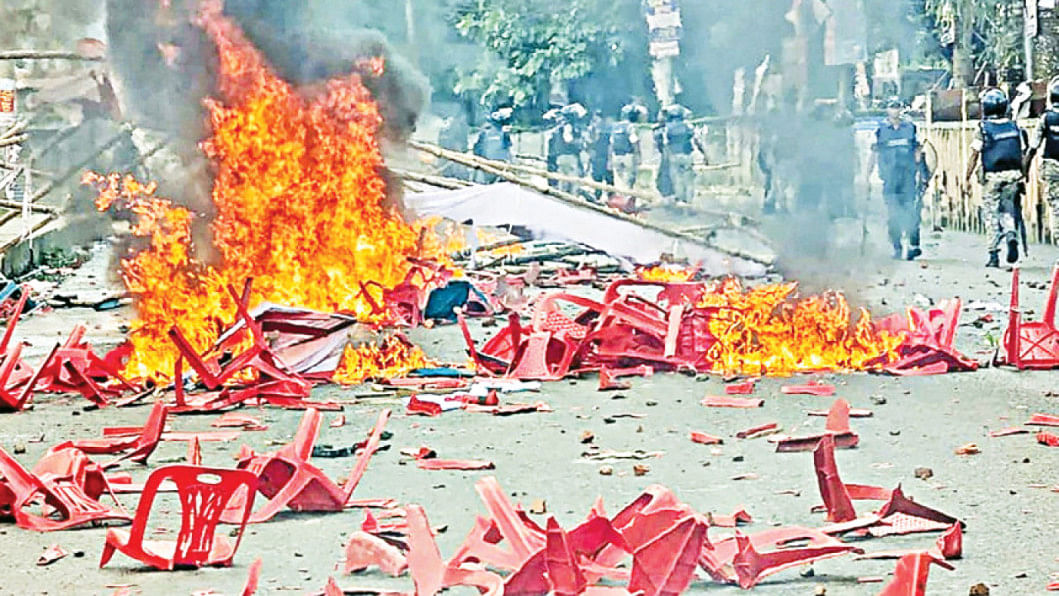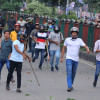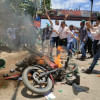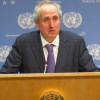The Gopalganj killings and the peril of impunity

The names of the dead in Gopalganj—Dipto Saha, Ramzan Munshi, Sohel Mollah, Ramzan Kazi, Imon—are bound to haunt the conscience of new Bangladesh. They were not political leaders or armed combatants; they were ordinary citizens stuck in a firestorm of political violence. Yet, the most damning story is not just how they died, but how they were buried. In the chaotic aftermath of the clashes on July 16, four victims were laid to rest "without inquest or post-mortem examination," a shocking abdication of legal duty that threatens to entomb the truth along with them. This is more than a procedural failure; it is a foundational crisis for a state forged in protest against impunity.
The failure to perform autopsies creates a black hole of accountability. A post-mortem is the state's first and most essential tool for answering the cardinal question in any violent death: who is responsible? It can determine the type of bullet used and, through ballistics, potentially link it to a specific weapon. Without this "vital piece of evidence," as Supreme Court lawyer Jyotirmoy Barua described it, the chances of identifying who fired the fatal shots are drastically reduced. The official explanation that "an unruly mob forcibly removed the bodies" from the hospital to prevent autopsies seems like an admission of the state's loss of control. It raises an even more disturbing question: why did a hospital holding the primary evidence of a multiple-homicide case have inadequate security?
This evidentiary vacuum is made darker by the cloud of official contradictions. On the one hand, the inspector general of police asserted that his officers did not use "lethal weapons." On the other hand, the Inter-Services Public Relations Directorate (ISPR) acknowledged that its troops used "force in self-defence" but made no mention of gunfire or casualties. With at least nine people suffering from gunfire wounds, legal rights group Ain o Salish Kendra (ASK) asked the question on everyone's mind: who fired these shots? In the absence of forensic proof, the conflicting statements from the authorities deflect responsibility, making way for rumours and speculation and deepening public distrust. A similar thing happened with the death of Abu Sayed, the first martyr of the anti-discrimination movement. His killing on July 16, 2024 was followed by a brazen state-led cover-up.
The then-government of Sheikh Hasina attempted to muddy the waters with false narratives of brickbats and rubber bullets. More damningly, they waged a war on the truth itself. As detailed in later reports, the forensic physician at Rangpur Medical College was pressured and threatened into altering the autopsy findings six times, each version designed to obscure the simple fact that Abu Sayed was killed by police birdshot. The previous regime's crime was to corrupt the evidence.
Now, the methods differ, but does that matter when the outcome is identical? In both instances, justice is obstructed at its source. In both cases, impunity was hatched, even though the interim rose to power on the promise of accountability.
The human cost of this failure is immense and ongoing. The families of the victims are left not only with grief but with a thorny path to justice. As Jyotirmoy Barua warned, if they wish to file a case, they may now face the "traumatic hurdle" of having to "exhume the bodies for autopsies." It is cruel forcing families to choose between letting the truth remain buried or disturbing the final rest of their loved ones.
The government has formed a committee to investigate the violence. But this inquiry will be meaningless if it cannot answer the questions the missing autopsies left unanswered. Its primary task must be to cut through the official obfuscation and establish a clear chain of command and action for the security forces on that day. The new Bangladesh cannot be built on the foundations of the old regime's practices. To allow that is to betray the very mass uprising that brought on this new Bangladesh.
Maj (retd) Md Badrul Alam Siddiqui, PhD is head of operations at Millennium Certis Security Bangladesh Ltd. He can be reached at [email protected].
Views expressed in this article are the author's own.
Follow The Daily Star Opinion on Facebook for the latest opinions, commentaries and analyses by experts and professionals. To contribute your article or letter to The Daily Star Opinion, see our guidelines for submission.

 For all latest news, follow The Daily Star's Google News channel.
For all latest news, follow The Daily Star's Google News channel. 









Comments